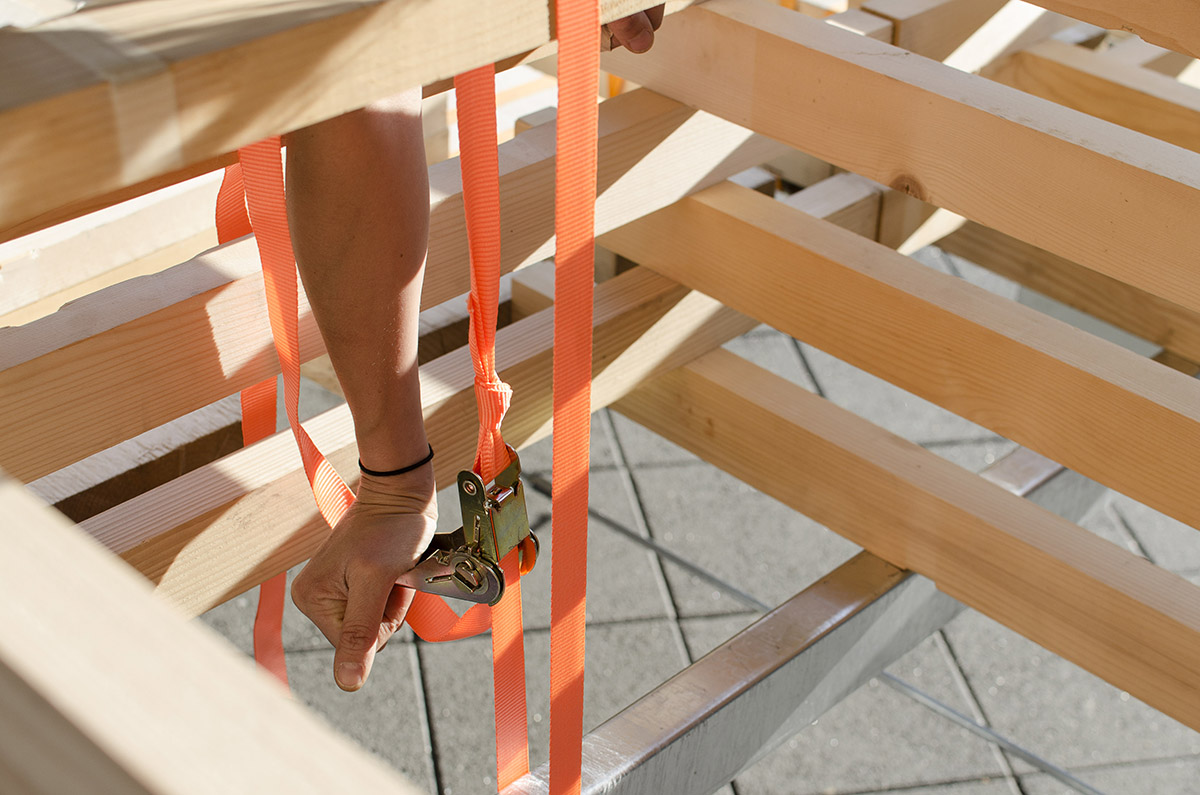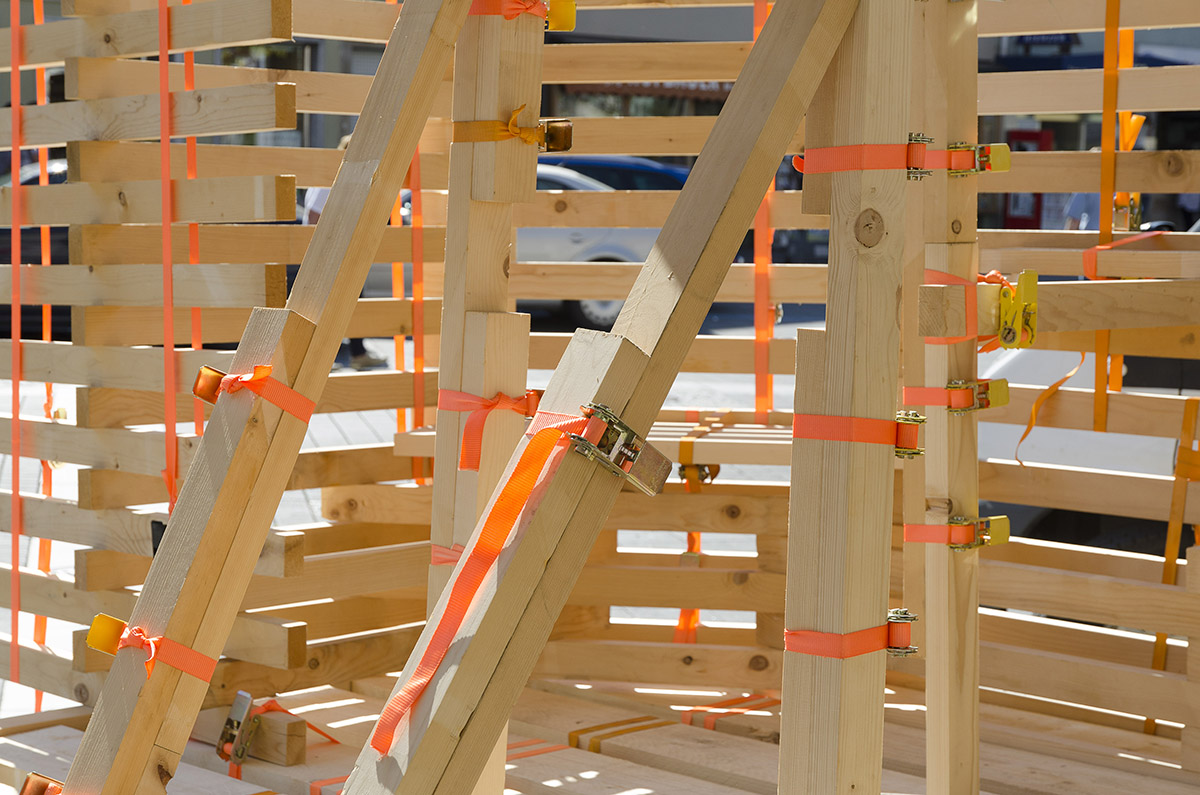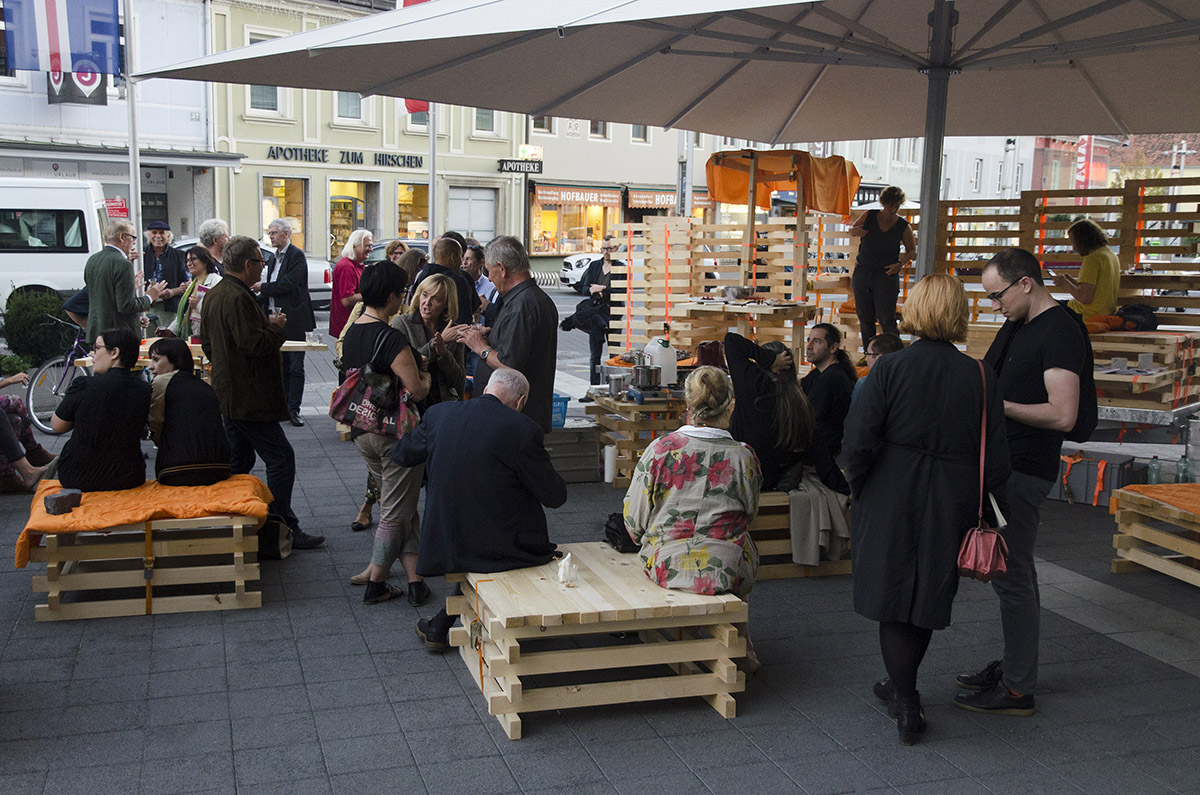














Mobile Tea House
Installation, Performance
Public Space, Leibnitz, AUT, Leutschach, AUT, 2016
In cooperation with Institut für Kunst im öffentlichen Raum Steiermark and steirischer herbst
Sponsored by
Schönbichler Tee
Comissioned work
Images by
Julia Gaisbacher
Rainer Prohaska sets out like a nomad to hold conversations, celebrate tea ceremonies, get in touch with people from his immediate surroundings and let them participate in an unsteady experiment. Not romantic thoughts of retreat, a contemplative turning away from hectic life are his mainsprings, but rather a reflected confrontation with contemporary problems that are topical due to the rapid pace of life and information and issues such as ecology, climate change, political upheaval, migration and senseless attempts at isolation. Instead of an apolitical retreat, Prohaska pushes communication and debate to address, initiate and question new solution models of multiple cultural and social coexistence.
Thus he brings ratchet straps and wooden profiles to Leibnitz and Leutschach and calls for the collective construction of a teahouse. He sees his work as a plea for flexibility and openness and as an invitation to dialogue between all cultures.
In the Near and Far East, tea rooms function as centres of social interaction. Countries like Turkey, Iran, Pakistan, Syria and Lebanon know tea drinking as a mode of communication as a matter of course. Japan and China even build their own buildings for tea consumption - a source of inspiration for Rainer Prohaska.
The artist has been invited to solo exhibitions and lectures in numerous countries and has become acquainted with different types of tea ceremonies. Inspired by this, he now invites people to collectively build a "Mobile Tea House" to create a social place where tea is served to the whole community.
In this combination of architecture and performance, Prohaska builds a bridge between cultural opposites. The special construction and aesthetics are symbolic of flexibility and a positive approach to change. Through contributions by guest artists, the teahouse becomes a hub for talks, discussions and chats. But what must not be missing in any case: tea ceremonies from the most diverse cultures of the world.
(Elisabeth Fiedler, Rainer Prohaska)
With:
Sabeth Tötli (CH)
Alexander Peer (AT)
Thus he brings ratchet straps and wooden profiles to Leibnitz and Leutschach and calls for the collective construction of a teahouse. He sees his work as a plea for flexibility and openness and as an invitation to dialogue between all cultures.
In the Near and Far East, tea rooms function as centres of social interaction. Countries like Turkey, Iran, Pakistan, Syria and Lebanon know tea drinking as a mode of communication as a matter of course. Japan and China even build their own buildings for tea consumption - a source of inspiration for Rainer Prohaska.
The artist has been invited to solo exhibitions and lectures in numerous countries and has become acquainted with different types of tea ceremonies. Inspired by this, he now invites people to collectively build a "Mobile Tea House" to create a social place where tea is served to the whole community.
In this combination of architecture and performance, Prohaska builds a bridge between cultural opposites. The special construction and aesthetics are symbolic of flexibility and a positive approach to change. Through contributions by guest artists, the teahouse becomes a hub for talks, discussions and chats. But what must not be missing in any case: tea ceremonies from the most diverse cultures of the world.
(Elisabeth Fiedler, Rainer Prohaska)
With:
Sabeth Tötli (CH)
Alexander Peer (AT)
